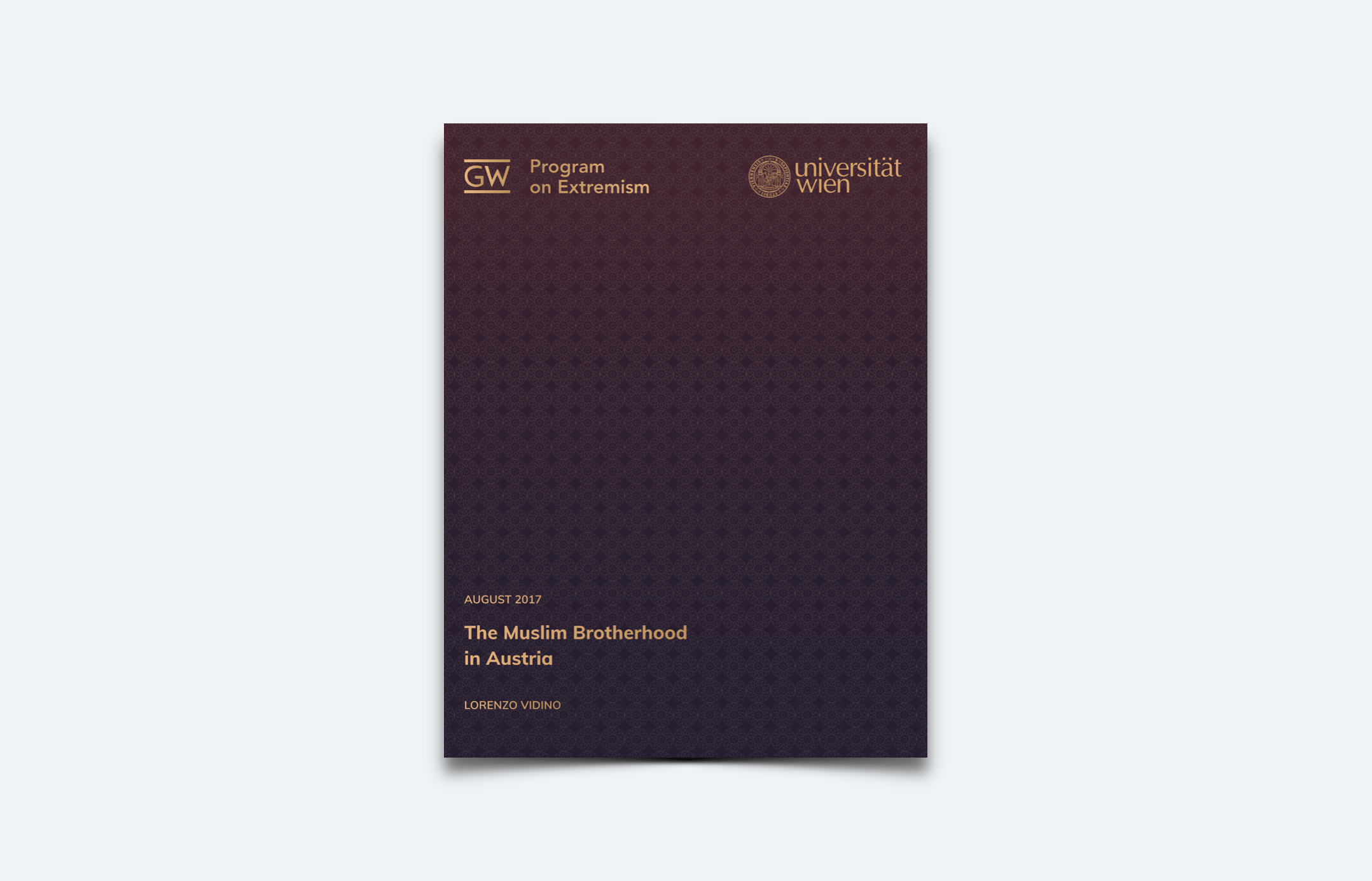This report seeks to provide a preliminary overview of the presence of the Muslim Brotherhood in Austria.
The Muslim Brotherhood, founded in 1928 in Egypt by Hassan al Banna, is the world’s oldest and arguably most influential contemporary Islamist movement. Its core belief views Islam as a complete and all-embracing system, governing all aspects of private and public life. It advocates a bottom-up, gradual Islamization of society that would eventually lead to the formation of a purely Islamic society and political entity.
The Muslim Brotherhood has spread globally, including to many Western countries since the late 1950s and early 1960s. In each country, the movement has taken on different forms, adapting to the local political conditions. All these entities work according to a common vision, but with complete operational independence. There are consultations and constant communication amongst the branches, but each is free to pursue its goals as it deems appropriate. While retaining solid links to the Middle East, Brotherhood entities in the West have acquired a substantial level of autonomy, reshaping part of the Brotherhood’s ideology and tactics to fit into non-Muslim majority societies.
Organisations and individuals linked to the Brotherhood in the West can be summarily divided in three categories according to the intensity of their links to the mother group:
• Pure Brothers: members of various branches of the Muslim Brotherhood throughout the Middle East who have established presences in the West, but remain part of the formal structure and are directly dependent on the branches in the Middle East.
• Brotherhood spawns: organisations established by individuals with strong personal ties to the Brotherhood, but which operate completely independently from any Brotherhood structure.
• Organizations influenced by the Brotherhood: organisations founded by individuals with some ties to the Brotherhood that have somewhat dwelled in ideological surroundings that are very close to the movement, but have no clear organisational ties to it.
Individuals and organisations that belong to each of the three categories have operated for decades in Austria, creating a sophisticated web of entities, charities, educational academies, and businesses, and obtaining a disproportionate level of visibility and power, considering the small number of Brotherhood members and sympathizers in the country. This pattern is common to most Western countries, as organisations linked to the Brotherhood have often managed, thanks largely to their access to large resources and organisational skills, to become privileged interlocutors of Western elites within Western Muslim communities. Western observers tend to over-estimate the representative nature and underestimate/ignore ties between the MB and these organisations.
Following a pattern similar to most European countries, over time, various Austrian organizations linked to the Brotherhood milieu have been entrusted with administering integration measures, various aspects of Islamic religious education in Austria and, since 2015, aiding in the reception of the large influx of Muslim migrants.
Western elites and governments engage and, at times, partner with Brotherhood organisations for several overlapping reasons. In some cases, the need for a well-structured and organized partner within the Muslim community overrides concerns about the Brothers’ views and aims. Authorities also seek to maintain a dialogue with the MB in order to avoid its radicalisation. In some cases, outreach to the MB is seen by some political forces as a way to ensure electoral successes.
The MB is a designated terrorist organization in Egypt, the United Arab Emirates, and a handful of other Middle Eastern countries, but neither Austria nor the European Union have designated the organisation. Despite some overlaps in ideology with Salafist and jihadist milieus, it would be a grave analytical mistake to lump the Brotherhood’s ideology together with these groups.
Nonetheless, the Brotherhood promotes a narrative that, through its use of victimhood and justification of violence, creates a fertile environment for radicalisation. Western Brotherhood entities have purposely exaggerated anti-Muslim incidents and attitudes (which unquestionably exist) to foster a siege mentality within local Muslim communities, arguing that the government and Western societies are hostile to them and to Islam in general. This dynamic has been particularly evident in Austria over the last few years. At the same time, the MB sees violence as legitimate in cases in which it views Muslims as under threat or occupation. Leaders and branches of the Brotherhood worldwide, including in Austria, have raised funds for Hamas, the Palestinian branch of the Brotherhood, and endorsed terrorist acts against Israeli civilians. The spread of this narrative of victimhood mixed with justification of violence should be seen with concern given the massive rise in radicalisation seen throughout Europe during the last five years.
The Brothers’ narrative is also problematic when it comes to its impact on integration and social cohesion. While Western Brotherhood spokespeople tend to publicly adopt more nuanced and less controversial views, their representatives in the Middle East or some of the less visible members of the milieu in the West condemn Western societies as corrupt, immoral, and unjust, as well as inferior to Muslim societies. Their positions on religious freedom, women rights, and gay rights are similarly problematic and at odds with European values.
The perception of the MB by Austrian politicians and representatives of the state is heterogeneous. On one hand, there are critical voices in politics, the media, and academia. Austrian security services have publicly labelled the MB as a threat to the social cohesion of Austrian society. On the other hand, organisations and individuals close to the Brotherhood can count on a well-established network of supporters within political, institutional and media circles.
Analysis produced by the report shows the deep personal, organizational, financial, and ideological interconnectivity among the individuals and organisations of the Muslim Brotherhood milieu in Austria.


